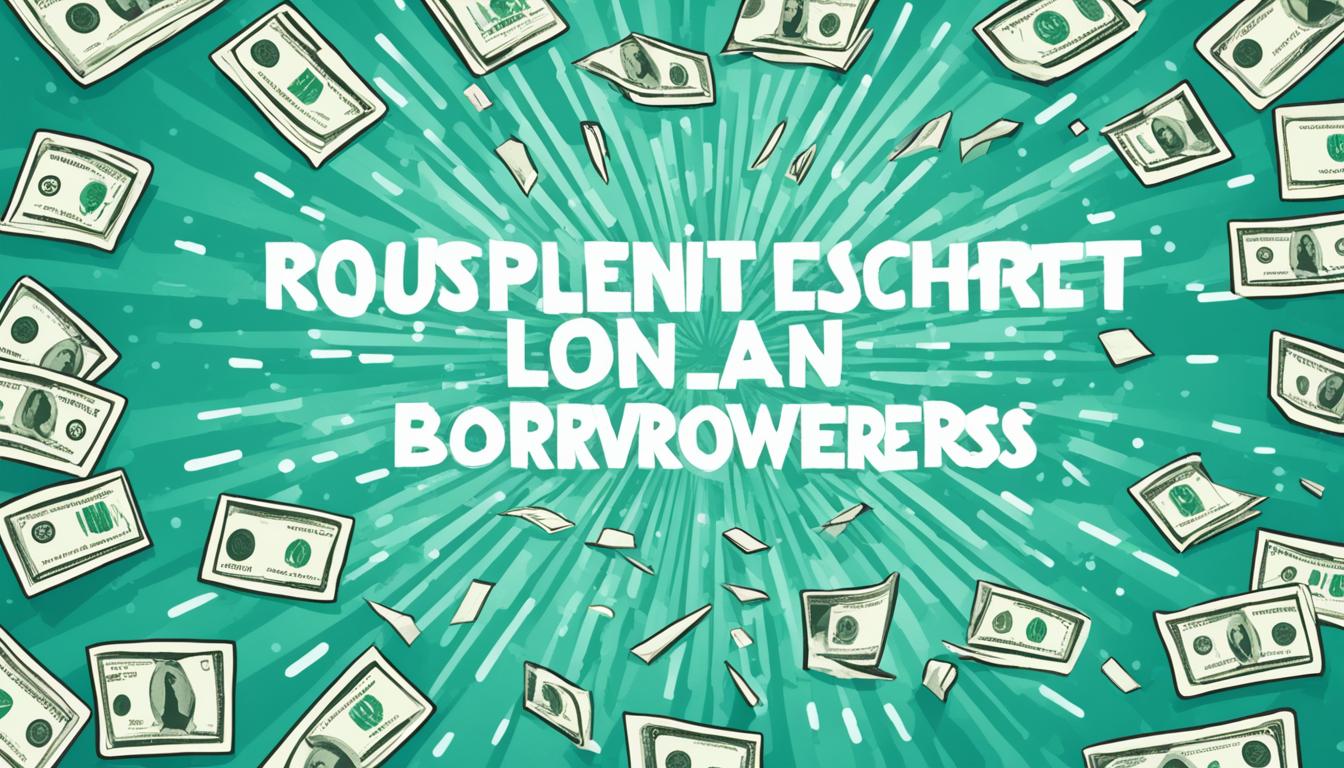Are serious student loans good and Reveal the benefits and considerations today
Ernest student loans are a common choice for those aiming for higher education. They bring many benefits that can greatly help students. But, it’s wise to look at all sides before choosing these loans. This article will look at the good and the not-so-good of ernest student loans. It aims to help you choose wisely.
Key Takeaways:
- Earnest student loans can provide essential financial assistance for students seeking a cost-prohibitive education.
- These loans offer accessibility to students with limited credit histories, making education more attainable.
- Compared to other financing options, earnest student loans often come with lower interest rates, helping to reduce long-term costs.
- However, high monthly payments and the risk of default should be considered when evaluating the suitability of these loans.
- Exploring alternatives and understanding the implications of student loan forgiveness are important steps in making an informed decision.
Pros of Student Loans
Student loans can be a big help in paying for college. They bridge the gap between how much college costs and what you can afford on your own. For many, they are the key to getting an education without breaking the bank.
Ernest student loans are easy to get, even without a strong credit history. This makes them a great option for students starting out. They ensure that those with dreams of higher education can find the financial support they need.
What’s more, these loans come with low interest rates. This means you’ll pay less back over time. It’s a wise move to shop around and compare different lenders to land the best deal.
With low interest rates, earnest student loans make college more affordable. They are a smart choice when other ways to pay for school don’t add up. It’s important to look at all your options and pick the one that suits your situation best.

Cons of Student Loans
Student loans can help pay for college, but they come with downsides. Knowing these downsides is key when deciding to borrow.
Here are some important drawbacks:
- High monthly payments: Monthly loan payments can be big, especially for those with lower incomes. They may strain your budget.
- Risk of default: Missing payments can harm your credit. It might also mean more fees. This could make it tough to get loans in the future.
- Incomplete coverage of expenses: Student loans may not cover all your costs. You might need extra income or financial help to meet all needs.
- Eligibility requirements: Getting a student loan can be hard due to certain criteria. This may limit your choices.
Before deciding on a student loan, consider both good and bad aspects. Think about your own financial situation. Look at other options too.

Alternatives to Student Loans
Looking for ways to pay for school? It’s smart to check out options besides taking out loans. Loans are helpful but not your only choice. Here are some other things you can do:
1. Use savings and income:
Try using money you’ve saved or what you earn from a job. If you budget well and save smart, you might not need loans at all.
2. Apply for grants or scholarships:
Grants and scholarships can really help. Lots of places, like schools and organizations, give them out. You should look into these to get as much help as possible.
3. Explore employer tuition assistance:
See if your job has programs that help with school costs. Many companies help their employees pay for more education. This means you might pay less from your own pocket.
4. Consider military benefits:
Interested in the military? They have benefits like help with tuition and grants for school. These are big ways they can help you pay for your education.
It’s really important to look into these other options, so you don’t just count on loans. Make sure to learn about how to apply and see if you qualify for each one. This can help you decide the best way to pay for your education without lots of loans.

Student Loan Forgiveness Debate
The discussion about forgiving student loans grabs everyone’s attention, from leaders to those who owe the money. Advocates say clearing student debt would ease financial stress, boost the economy, and fight social inequality. They want to help people hit hard by their student debt by giving them a clean slate.
This way, these people can put their money back into the economy by spending, saving, or investing. But, some people have valid reasons against this plan. They say the costs might be too high and the benefits not spread out that well. Mainly, they worry it will help the rich people more, making the gap between them and those who really need help even bigger.
Another reason not to forgive student loans is that it might just cover up the problem of high tuition. By not fixing why education costs so much, some say this could just keep making things worse. They argue that it’s better to find ways to make college cheaper and offer different education paths.
We also need to think about what forgiving these loans could mean long-term. While it could help right now and in the next few years, its overall effect is still up for debate. Leaders need to carefully look at both the good and the bad before making any decision. They need to pick a plan that helps those in debt but also makes financial sense.
Impact on Borrowers, Government, and Economy
Forgiving student loans can change how borrowers, the government, and the economy act. It helps borrowers by easing their budget. They won’t have to worry as much about paying huge student loans. Instead, they can use their money for things like home buying, starting a family, or saving for later. Breaking away from debt can also push up credit scores, opening the door to better loan offers.
Forgiveness is not a free pass for the government, though. It means the government won’t collect money on the main loan or the interest. This loss would hit the government’s income hard, costing it billions of dollars.
People debate if scrapping student debt will help the economy. Those who back the idea say it will get people spending more or starting their own businesses. They think it will also ease the money struggles some people face. This, they believe, will make more jobs and more tax money for the government.
Yet, some worry about problems forgiveness might bring. They fear it could make people less careful about borrowing or raise prices. And, they say, people who make more and have bigger loans might benefit more.
“Student loan forgiveness has the potential to provide much-needed relief to borrowers, but we must carefully consider the associated costs and broader economic implications. It’s crucial to strike a balance between relieving the burden on borrowers and ensuring the long-term economic sustainability.”
Predicting what loan forgiveness will do to the economy is hard. Some say it will really help by making people spend more and boost the economy. Others think these funds could be spent elsewhere. This means the pluses might not be as great as some hope.
While dumping student loans helps now, it doesn’t solve why college is so costly. We might need bigger fixes to cut tuition fees, offer more education choices, and deal with the main causes of student debt.

Conclusion
Earnest student loans present a good way to finance higher education. They offer many benefits that draw people in. One key advantage is their lower interest rates. This helps students cut down on the cost of their education. These loans are easier on the budget, making education more accessible to all.
They are also designed for students with little credit history. This helps more people get the funds they need for school. Being more accessible, they open doors for many wanting to learn.
Despite the good side, there are some things to think about. Such as big monthly payments and the risk of falling behind. It’s wise for borrowers to look at other options. They should also think about what student loan forgiveness could mean for them.
Choosing earnest student loans requires careful thought. Look at all the advantages and disadvantages. Then, make a decision based on the best information. It’s about making a choice that fits your needs. Always do your homework to make the best financial decisions.
FAQ
Are earnest student loans good?
Earnest student loans have many pluses. They are affordable, easy to get, and have lower interest rates. But, remember they also come with high monthly payments and default risks. It’s key to weigh these points before choosing them.
What are the benefits of earnest student loans?
These loans make getting a pricey education easier. They are open to students with small credit histories and offer lower rates than other loans do.
What are the interest rates for earnest student loans?
The rates vary by your credit, how long the loan lasts, and your repayment plans. Compare rates and terms from different lenders to find what’s best for you.
How do earnest student loans compare to other lenders?
It’s important to compare these loans to others. Be sure to look at different lenders to find the best option for you.
What are the pros and cons of earnest student loans?
Pros of these loans are their affordability, how easy they are to get, and their low rates. But, they can lead to large monthly payments and default risks. Be sure to think about these before choosing.
What is the eligibility criteria for earnest student loans?
To get these loans, you usually need to be in a degree program at an approved school. You might also need to meet credit and income requirements.
What is the approval process for earnest student loans?
The first step is an online application. Then, you provide some documents, and your credit and income are checked. This usually takes a few business days.
What alternatives are there to student loans?
Instead of loans, you could use savings, work income, grants, or scholarships. Or you could check out help from employers or the military. It’s good to research these options and see if you qualify.
What is the student loan forgiveness debate?
Some people think forgiving student loans would be good. They say it could help the economy and make things fairer. Others worry about the cost and who it would benefit.
What is the economic impact of student loan forgiveness?
Forgiving loans could help the economy. It might increase GDP. But, it would also cost the government a lot in lost payments and interest.
What are the effects of student loan forgiveness?
Forgiveness could lighten the financial load for many. It might also boost the economy. But, we must look at its effects on the government’s money and the economy as a whole.


